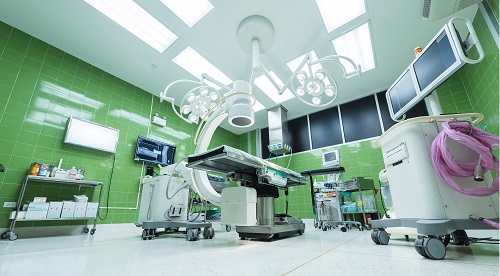The United Kingdom is a popular destination for expats with lots of work opportunities and many may believe that they do not need health insurance for the duration of their stay.
While the National Health Service is rated as being one of the best in the world, there are some charges that expats may be liable for.
However, while all expats working in the UK will be entitled to free emergency treatment at NHS hospitals and for treatment in a GP’s (doctor’s) surgery, where the expat comes from may have a bearing on how much they may, or may not, be charged.The length and purpose of their stay will also have a bearing on whether they will be charged for treatment.
Reciprocal healthcare agreements
The UK has reciprocal healthcare agreements in place with a range of countries including the European Union as well as New Zealand and Australia so for expats from these countries, they are exempt from healthcare payments.
Expats from Australia and New Zealand only get six months of free healthcare under new rules rather than the 12 months they previously enjoyed.
It should be borne in mind that everyone working in the United Kingdom is paying a proportion of their salary in National Insurance (NI) contributions which helps to pay for the NHS and for subsidised prescriptions.
The National Insurance number should be supplied by an employer under the PAYE system but it can be applied for; information for doing so is at the end of this article, and expats with a biometric residence permit (BRP) will already have one printed on their permit. Only expats who have the right to study or work in the UK can apply for a NI number.
Also, while the NHS is rightly famous for offering effective universal healthcare, there are issues within the system such as needing to wait for hospital appointments and some long-term conditions suffered by an expat may not be able to be treated at all.
Level of health insurance
It would be a good idea for an expat to have a good level of health insurance while in the UK and there are a good range of private hospitals and services with lots of specialist care available for particular ailments.
After receiving their National Insurance number, the expat will need to register with a GP. It’s at this point they may be given an NHS number which is simply a way to identify the expat with their health records; it should not be confused with their NI number and whether the expat can access NHS treatment.
It is possible to see a dentist for NHS treatment but not every dental surgery offers this and those that do will still charge for treatment (but not as much as they would for someone seeking private treatment).
It’s important to remember that a GP is the expat’s first point of contact if they are looking to access a specialist NHS service since the GP will need to refer them to a relevant doctor. Expats cannot simply turn up at a hospital in a bid to make an appointment to see a specialist.
Dental treatment is only free under certain circumstances and most expats will be charged a proportion of the dentist’s charges.
GP appointments
Expats may also be surprised to find that they may not be able to get an appointment on the same day with a GP though many surgeries offer a service that may see them filling an appointment slot if they call at 8am – but lots of other people will probably be doing the same as well.
This means most GP appointment will take place within a few days but for busy surgeries it may take up to a week and after being referred to a specialist this process may take a few weeks or months before someone gets in touch to offer a hospital appointment.
While making an appointment to see a GP and a specialist consultant may appear to take a long time, the UK operates an efficient emergency service as well as ambulance for Accident and Emergency (A&E) emergencies and also a GP will see a patient in emergency circumstances.
Another important issue to appreciate is that visitors from overseas who need healthcare may face being charged for any treatment they receive if they do not come from a country with a reciprocal agreement.
The aim is to crack down on health tourists so the NHS will charge visitors, migrants as well as former residents of the UK who have returned to the country, for their care.
Upfront charges
In addition, some expats including foreign students will be required to pay an upfront charge for any potential NHS treatment they may receive. This is known as the immigration health surcharge which will also apply to expats from those countries not covered by a reciprocal health agreement.
The idea of receiving free treatment is on the basis of the recipient being ‘ordinarily resident’ in the UK and not on whether they have paid national insurance or UK taxes.
Expats with the European Health Insurance Card (EHIC), can access healthcare since their costs will be reclaimed from their country of residence but for those expats who do not have a card or health insurance then they may be handed a sizeable bill.
For those expats who do have health insurance they should ensure that their plan provides cover while they are staying in the UK so they can access healthcare when necessary.
Those expats who need to access healthcare in the UK and who use the NHS will find an efficient and friendly system that operates around the country to deliver a high quality of care that is the envy of many countries.
More information
Get a National Insurance number: 0345 600 0643 between 8am and 6pm, Monday to Friday or visit the government’s NI website.
Information about NHS numbers and what they are for and details about NHS charges.

